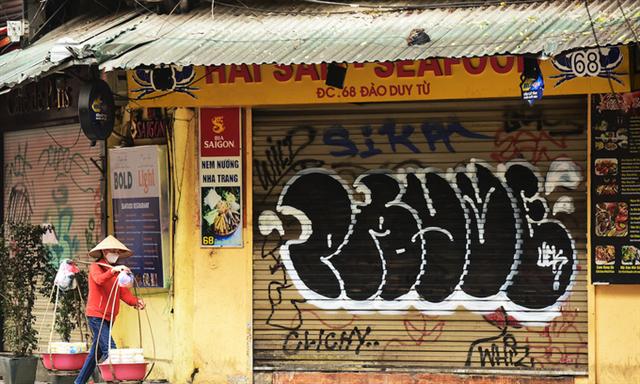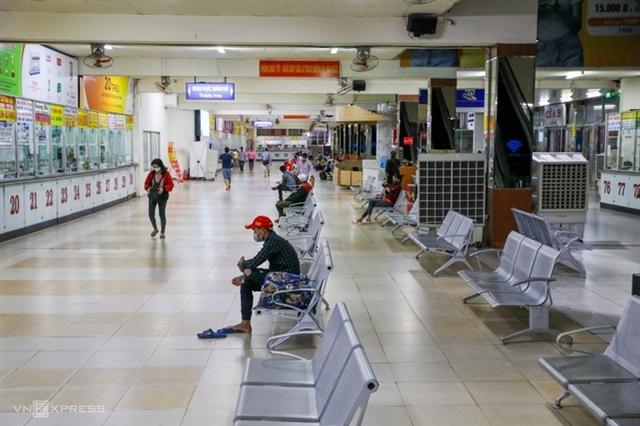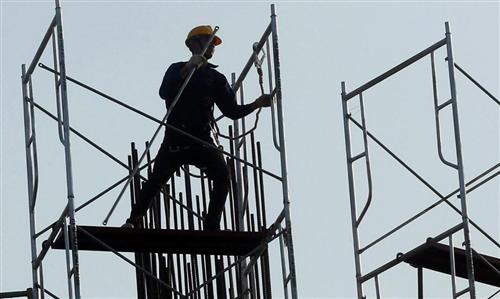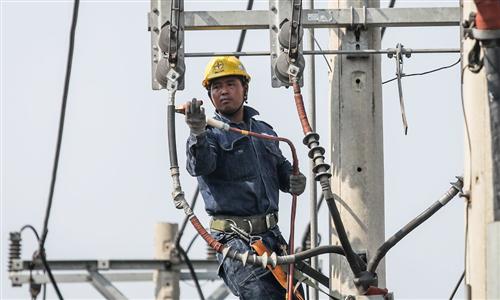Covid-19 hibernation hurts Vietnamese firms
Covid-19 hibernation hurts Vietnamese firms
Hue, the director of a media company, has put most of her employees on unpaid leave, with most customers cutting advertising contracts.

A shop in Hanoi closed amid the coronavirus pandemic, April 2020. Photo by VnExpress/Giang Huy.
|
After vacating a rented office in Ho Chi Minh City's Binh Thanh District, Hue and some of her remaining staff have been working from home, mainly looking for new customers and making post Covid-19 recovery plans.
Allowances for petrol, lunch and birthday gifts for employees have to be cut after going three months without any income."If the situation does not improve next month, I will terminate the labor contracts with the remaining employees and suspend the business to limit losses," she said.
To, owner of a transport company, has also been struggling because of the ban on interprovincial transport which only came to an end by the end of April. Nearly a month without revenue, the company has had to negotiate with the bus station for rent exemption for ticket kiosks and reduced wages linked to actual performance by drivers. "Without savings and profit from several years ago, we would have had no choice but to close," To said.
Suspension plans are on the agenda for tens of thousands of Vietnamese enterprises hit by the Covid-19 crisis. According to statistics from the Business Registration Management Agency, since early 2020, nearly 10,440 Vietnamese enterprises have been withdrawing each month from the market. In 16 of 17 sectors, the number of enterprises ceasing to do business increased over the same period last year. Most of the business suspension happened in real estate, accommodation, catering, tourism and transportation.

A bus station in Ho Chi Minh City before the social distancing campaign was launched on April 1, 2020. Photo by VnExpress/Quynh Tran.
|
In 2015-2019 period, the number of enterprises registering to suspend business in the first four months of the year increased by about 20 percent on average year-on-year, but the rise this year was 33.6 percent, a new record, showing the direct impact of Covid-19.
"Businesses are tending to wait and ‘hibernate’ to watch and review the progress of the disease before deciding to continue or shut down completely. This is shown by the sharp increase in the number of enterprises in short-term suspension," said a representative of the Business Registration Management Agency.
A report by the Vietnam Chamber of Commerce and Industry (VCCI) shows that at the beginning of last month, nearly 85 percent of businesses noticed their consumption markets had narrowed and 60 percent complained about the lack of capital and cash flow. If the situation continued, only about 30 percent of Vietnamese enterprises will maintain operations for three months at the most, and 50 percent for six months, the report says.
"There is no saying when the pandemic will end, but it is certain that the consequences and impact on the economy will be lasting and irreparable. Accumulated challenges lie ahead," said Vu Tien Loc, VCCI chairman.
He suggested some relief measures including deferment of VAT, corporate income tax, personal income tax, social insurance and trade union fee payments. He also proposed that the government enacts policies to exempt and reduce taxes, social insurance, fees and other charges.
The representative of the Business Registration Management Department said the Covid-19 crisis was an opportunity for businesses to reassess their strengths and weaknesses and set new orientations and directions to suit market demands.
"Businesses can seize the opportunity to transition from being frozen to rapid growth when the pandemic is under control," he said.
The reported noted that despite the "complicated developments of Covid-19 in the first four months of the year, more than 37,000 new businesses were established in the country. During the same period, the number of businesses returning to operation increased 2 percent, while this figure was 52 percent last year.



























